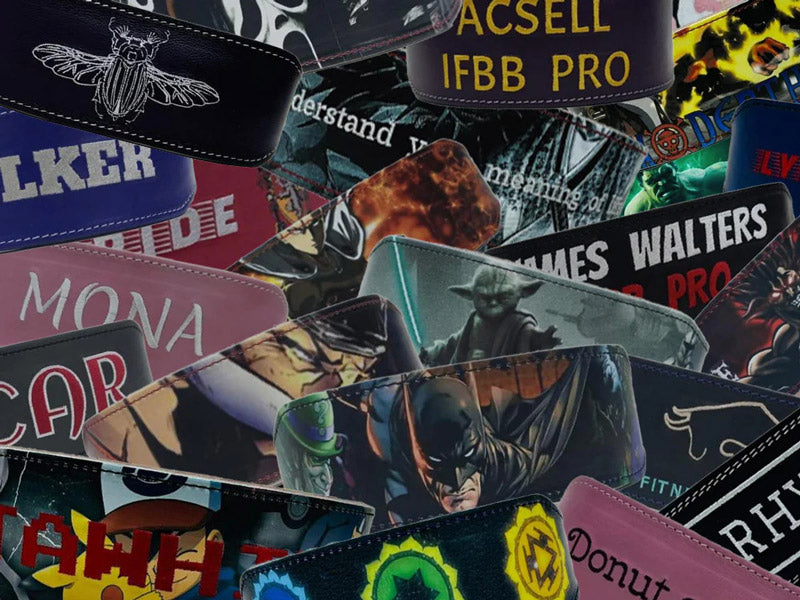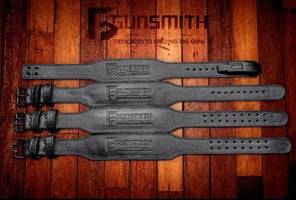Your Complete Guide to Occlusion Training and Doing it Right
In fitness, there will always be new trends “that will totally change how you exercise!” but not all of them stick. Maybe it’s ultimately too tedious, or the science isn’t sound, or there’s some other reason why it didn’t quite catch on.
Blood flow restriction training (also known as occlusion training) isn’t one of those things. It’s not tedious, it fast tracks your progress, and while “blood flow restriction” may sound intimidating, the science is definitely sound. It’s not even a new thing – the concept has been around for a few decades, and it’s used especially in physical rehabilitation and physical therapy. And what we’re here to tell you is that there’s no reason why it can’t be popular for the regular guy or girl at the gym too.
What is it, and how does it work?
Blood flow restriction training, or BFR training, is basically when you trick your body into thinking it’s operating at a higher intensity than it actually is. Using some tourniquet to occlude, blood pressure cuff, or close up a limb limits the amount of oxygenated blood reaching a working muscle. Lactate pools in the occluded working muscle and increase your body’s protein synthesis. Fast twitch muscle fibers, responsible for speed, power, and strength, are activated.
So performing low-load resistance training with occluded limbs give you the same results as performing high-intensity workouts with heavy weights, and while this is especially helpful for those recovering from injury, again, there’s no reason why you can’t start doing it at the gym too. BFR training gives a turn to traditional strength training, improving strength, muscle pump, and muscle mass with lighter weights.
But before you rush off to the gym to practice occlusion training, you need to know how to do it right to avoid blood clots and other potential risks. Some of the benefits of BFR training include muscle activation, reduced knee pain, and increased strength without having to work harder.

What to use for blood flow restriction training?
There are a few things you can use to adequately restrict blood flow to your limbs – blood pressure cuffs, bands, ace bandages, wraps, and KAATSU equipment (to be used in conjunction with the patented KAATSU exercise method).
Correctly wearing bands and the proper equipment during blood flow restriction training is crucial in activating your muscle cells and preventing muscle damage. Our BFR bands have been designed specifically for the gym. They’re super easy to use, comfortable, and won’t pinch when you pull to tighten it, and it’s made with premium elastic, so it’s durable and won’t fray.
How to wear it right and increase muscle growth
Wrap the band around the upper arm or leg, and pull to tighten until you’re restricting blood flow to the limb. It’s important not to wrap it too tightly to restrict too much blood flow, but still tight enough that it’s effective to reach muscle failure.
For your arms, you’ll want to aim for about a 6 out of 10 for the level of tightness, where ten is as tight as you can go. For your legs, you’ll want to aim for a 7. This way, building muscle strength and muscle growth will be easier. Without lifting heavier weights and without the possible risks involved.
You may need to try it out a few times and adjust until you hit that level of tightness, and that’s no problem with our BFR bands, as they’re pretty easy to put on and take off.

What to do
- Before wrapping up, perform a light warm-up such as stretching, walking, or light cycling for about 5 minutes. Choose a weight 20 to 40 percent of your 1 rep max, and perform 15 reps
- Then wrap up, and using the same weight 20 to 40 percent of your 1 rep max, perform 15 to 30 reps, and 3 or 4 sets of your regular workout activity
- Rest for 30 seconds in between sets
Of course, the exercises vary depending on which muscle group you want to work. As with any exercise, you'll want to perform these in perfect form. Use BFR training work to lift weights and do exercises like leg curls and leg extensions and build muscle in your upper arms. When you're no longer able to do so, that means you've achieved volitional fatigue, and that's how you'll want to end the session for maximum gains. Remember that blood flow restriction training is a way to "trick" your brain. Improve your muscular strength gains by lifting a lower weight.

A few more things to think about
First thing, expect to feel sore after your first blood flow restriction training work session – and if you’re not, that means you may need to tighten your bands a little bit more.
There will be less wear and tear on your muscles and joints when you’re not dealing with as heavy weights as you otherwise would have to get to that level of swole.
Lastly, exercising in poor form opens you up to more risk of injury which could delay your fitness journey – or worse, completely derail it. Thanks to the blood flow restriction, it is possible to increase muscle size and strength with lighter loads and safely, even if you are an older adult with the right equipment and the company of a physical therapist.
Safety is paramount, and it doesn’t hurt that you’ll look better with our gear on too. Take your heavy training sessions to the next level and improve your athletic performance!




